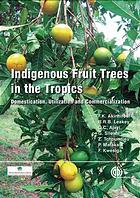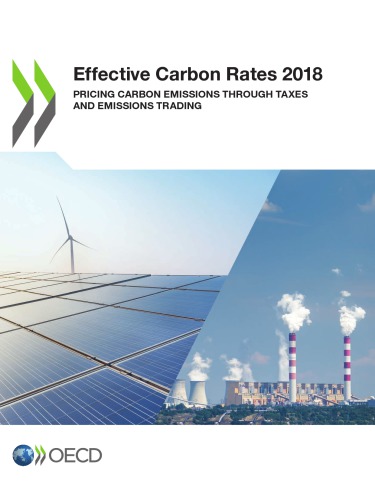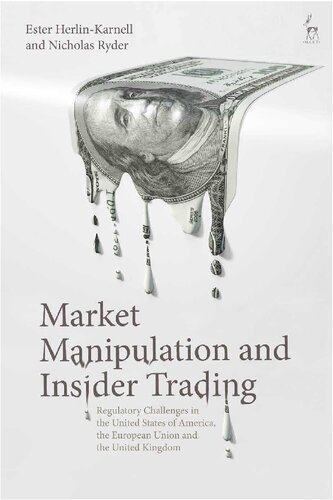موضوعات
آموزش و پرورش
ادبیات و زبان
پزشکی، دندانپزشکی و داروسازی
تاریخ و جغرافیا
داستان و رمان
دیگر
دین و فلسفه
روانشناسی
ریاضیات و آمار
سلامتی، تناسب اندام و رژیم غذایی
شیمی و پلیمر
علوم اجتماعی و حقوق
علوم زیستی و بیوتکنولوژی
فیزیک و نجوم
کامپیوتر و اینترنت
کتابهای کودکان و داستان
کسب و کار و اقتصاد
کشاورزی و دامپزشکی و غذا
معماری
مهندسی و فناوری
هنر و تئاتر
محصولات
Health-promoting properties of fruit and vegetables - Original PDF
نویسندگان: خلاصه: Fruit and vegetables have been an important constituent of the human diet from time immemorial. Indeed, some 3500 years ago, when the children of Israel were wandering in the desert from Egypt to Canaan, they were reported to complain to Moses, 'And wherefore have ye made us to come up out of Egypt... it is no place of seed or of fig or of vine or of pomegranate...' (Numbers 20:5) and 'We remember the fish, which we did eat in Egypt freely; the cucumbers, and the melons, and the leeks, and the onions, and the garlick' (Numbers 11:5). Hippocrates (c.460- 370 Bc) later wrote 'Let food be thy medicine and medicine be thy food'Forebrain Atlas of the Short-tailed Fruit Bat, Carollia perspicillata: Prepared by the Methods of Nissl and NeuN Immunohistochemistry - Original PDF
نویسندگان: خلاصه: The atlas will be useful for students and investigators doing neuroscience research on bat and other mammalian species, as well as students of comparative biology, zoology, brain evolution, and the history of neuroanatomical analysis.Chemistry and Technology of Soft Drinks and Fruit Juices, Second Edition - Original PDF
نویسندگان: خلاصه: Soft drinks and fruit juices are produced in almost every country in the world and their availability is remarkable. From the largest cities to some of the remotest villages, soft drinks are available in a variety of flavours and packaging. The market for these products continues to show a remarkable potential for growth. The variety of products and packaging types continues to expand, and among the more significant developments in recent years has been the increase in diet drinks of very high quality, many of which are based on spring or natural mineral water.Indigenous fruit trees in the troIndigenous fruit trees in the tropics : domestication, utilization and commercializationpics : domestication, utilization and commercialization - Original PDF
نویسندگان: خلاصه: Agriculture is at the core of rural livelihoods. The viability of rural livelihoods in many developing nations is threatened by several interconnected factors which reduce options for smallholder farmers and rural community dwellers. These include: inadequate food and nutritional imbalance in diets; narrow opportunities for off-farm and off-season income, especially for women and children; and depleting production systems. These negative impacts of modern agriculture are further exacerbated by the loss of biodiversity of wild forest resources due to deforestation, overexploitation and the ‘tragedy of the commons’.Mastering the Trade, Third Edition: Proven Techniques for Profiting from Intraday and Swing Trading Setups - Original PDF
نویسندگان: خلاصه: The go-to guide for launching a lucrative career in trading--fully updated for today's turbulent markets One of today's most successful traders, John F. Carter has made his popular guide more relevant and effective than ever. This new edition ofMastering the Tradeincludes the essential content that has made it a bestselling classic, and includes critical new information for making the best trading decisions in every situation. Combining insightful market overview with trading strategies and concepts, Carter provides: -Proven set-ups, with optimal markets and non-negotiable trading rules -Exact entry, exit, and stop loss levels for swing and intraday trading -Seven key internals, from Skew to VIX -Pre-market checklist for analyzing recent market behavior -Scanning techniques for pinpointing high-probability setups-Effective risk control techniques -Methods for ensuring your computer runs at max speed-Techniques for predicting market corrections From valuable hardware and software to market mechanics, pivot points, and position sizing, Carter delivers a suite of tools for beating out the competition on a regular basis. Mastering the Trade, Third Editionbuilds your expertise in knowing what's working for you and what's working against you, so you make a living on the frontlines of professional trading.Ancient science: 40 time-traveling, world-exploring, history-making activities for kids - Original PDF
نویسندگان: خلاصه: Dig into the science of ancient times and unearth amazing discoveries! • Have you ever wondered where paper comes from, who made the first known maps, or how the ancient Egyptians were able to build the pyramids? • Would you like to make your own sundial, discover how to detect earthquakes, or learn to write in hieroglyphics? • Are you looking for great ideas for your next science fair project? If you answered "Yes" to any of these questions, then Ancient Science is for you! From Greek lighthouses and Roman bridges to Chinese kites and Mesopotamian soap, you'll investigate some of the greatest scientific discoveries and the people who introduced them to the world. Dozens of fun-packed activities help you see for yourself how the earliest humans cultivated plants, why instruments make different sounds, how fireworks get their explosive power, and much more. All of the projects are safe and easy to do, and all you need is everyday stuff from around the house. So step back in time and take an amazing journey with Ancient Science!Effective carbon rates 2018 : pricing carbon emissions through taxes and emissions trading - Original PDF
نویسندگان: خلاصه: Pricing carbon emissions allows countries to smoothly steer their economies towards and along a carbon-neutral growth path. By putting a price on carbon emissions, countries can increase resource efficiency, boost investment in clean energy, develop and sell low- emission goods and services, and increase resilience to risks inherent in deep structural change. Failing to price carbon emissions now, increases the risk that the planet overheats, with average temperatures increasing by five or more degrees. Adaptation to such increases might be possible, but would likely be extremely costly. Decisive action to reduce the risk is by far the better option. Pricing carbon emissions is important for moving to carbon-neutral growth. This second edition of Effective Carbon Rates shows how 42 OECD and G20 countries, representing 80% of world emissions, price carbon emissions from energy use today, and how much progress has been made since 2012. Carbon prices are measured using the effective carbon rate (ECR). The ECR is the sum of three components: specific taxes on fossil fuels, carbon taxes and prices of tradable emission permits. All three components increase the price of high-carbon relative to low- and zero-carbon fuels, encouraging energy users to go for low- or zero-carbon options. In each of the 42 countries, the ECRs are measured for six economic sectors: industry, electricity generation, residential and commercial energy use, road transport, off-road transport, and agriculture and fisheries. The report discusses the change of ECRs by comparing pricing patterns in 2012, 2015 and estimates for 2018. The carbon pricing gap measures the difference between actual ECRs and benchmark rates. The report considers two benchmark rates: EUR 30, a low-end estimate of carbon costs today; and EUR 60, a midpoint estimate of the carbon costs in 2020 and a low-end estimate for 2030. The carbon pricing gap indicates the extent to which polluters do not pay for the damage from carbon emissions.Cryptocurrency Master: Everything You Need To Know About Cryptocurrency and Bitcoin Trading, Mining, Investing, Ethereum, ICOs, and the Blockchain - Original PDF
نویسندگان: خلاصه: Cryptocurrency Master Bundle: 5 Books in ONE! Everything You Need to Know about Cryptocurrency and Bitcoin Trading, Mining, Investing, Ethereum, ICOs, and the BlockchainMarket Manipulation and Insider Trading: Regulatory Challenges in the United States of America, the European Union and the United Kingdom - Original PDF
نویسندگان: خلاصه: The European Union regime for fighting market manipulation and insider trading - commonly referred to as market abuse - was significantly reshuffled in the wake of the financial crisis of 2007/2008 and new legal instruments to fight market abuse were eventually adopted in 2014. In this monograph the authors identify the association between the financial crisis and market abuse, critically consider the legislative, policy and enforcement responses in the European Union, and contrast them with the approaches adopted by the United States of America and the United Kingdom respectively. The aftermath of the financial crisis, ongoing security concerns and increased legislation and policy responses to the fight against irregularities and market failures demonstrate that we need to understand, in context, the regulatory responses taken in this area. Specifically, the book investigates how the regulatory responses have changed over time since the start of the financial crisis. Market Manipulation and Insider Trading places the fight against market abuse in the broader framework of the fight against white collar crime and also considers some associated questions in order to better understand the contemporary market abuse regime.آیا کتاب مورد نظر هنوز بر روی سایت قرار نگرفته است؟ جای نگرانی نیست! کافی است بر روی گزینه سفارش کتاب کلیک کرده و درخواست خود را ثبت کنید. در کمتر از چند ساعت کتاب شما را آماده خواهیم کرد.









